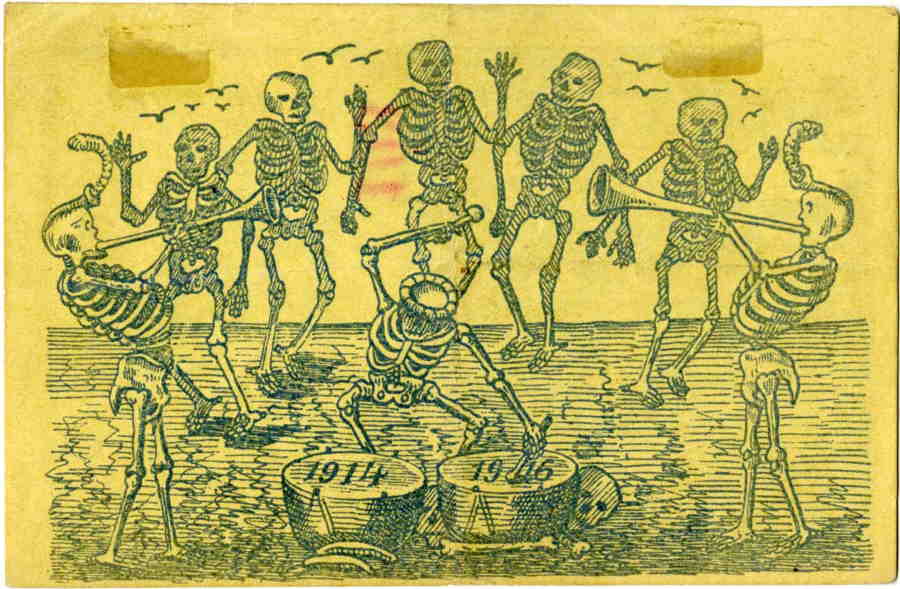The Bioeconomics of Covid-19
By Judith Levine,
n+1
| 11. 13. 2020
How, exactly, do we value a human life?
Back of the 50 centime emergency note issued in 1916 by the Merksplas Local Board of the National Assistance and Food Committee © Museum of the National Bank of Belgium
Biopower and necropolitics
IN DISCIPLINE & PUNISH Michel Foucault describes the measures taken, as per magisterial edict, in a plague-ridden French city sometime in the late seventeenth century. On the first day of quarantine, everyone is ordered to stay indoors; the doors are locked from the outside. Sentinels are posted at the city gates. Armed guards patrol the town hall.
Each street is placed under the surveillance of a syndic, who visits every house every day, speaking through a window. “Everything that may be observed during the course of the visits—deaths, illnesses, complaints, irregularities—is noted down and transmitted” to the city authorities. A resident who goes out without permission or a syndic who leaves the street may be sent to the gallows. Public health and social control go hand in hand.
The authorities recognize an obligation to the people inside the houses, who receive a kind of care, albeit compulsory: interrogations...
Related Articles
By Kiana Jackson and Shannon Stubblefield, New Disabled South | 02.09.2026
"MC0_8230" via Wikimedia Commons licensed under CC by 2.0
This report documents a deliberate assault on disabled people in the United States. Not an accident. Not a series of bureaucratic missteps. An assault that has been coordinated across agencies...
By Amy Feldman, Forbes | 02.17.2026
"Jennifer Doudna" by Duncan Hull for the Royal Society via Wikimedia Commons licensed under CC by SA 3.0
Soon after KJ Muldoon was born in August 2024, he was lethargic and wouldn’t eat. His worried doctors realized his ammonia...
By Julia Métraux, Mother Jones | 02.10.2026
Why was Jeffrey Epstein obsessed with genes? In the latest tranche of Epstein records and emails made available by the Department of Justice, themes of genes, genetics, and IQ—alongside more explicit threads of white supremacy—keep cropping up, often adjacent to Epstein’s...
By Ava Kofman, The New Yorker | 02.09.2026
1. The Surrogates
In the delicate jargon of the fertility industry, a woman who carries a child for someone else is said to be going on a “journey.” Kayla Elliott began hers in February, 2024, not long after she posted...




